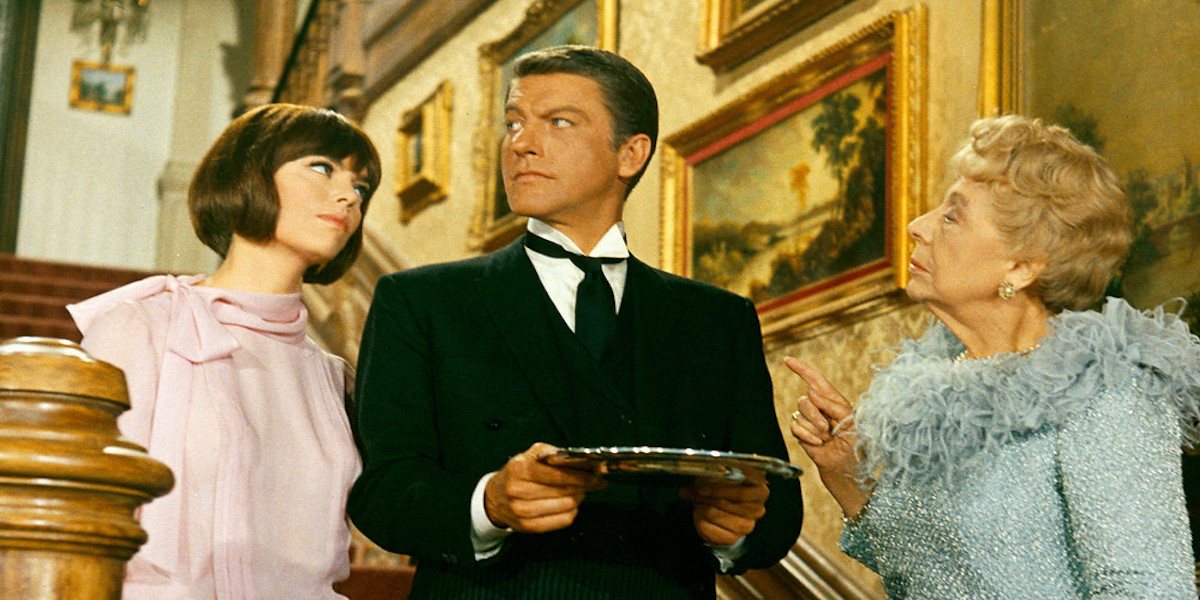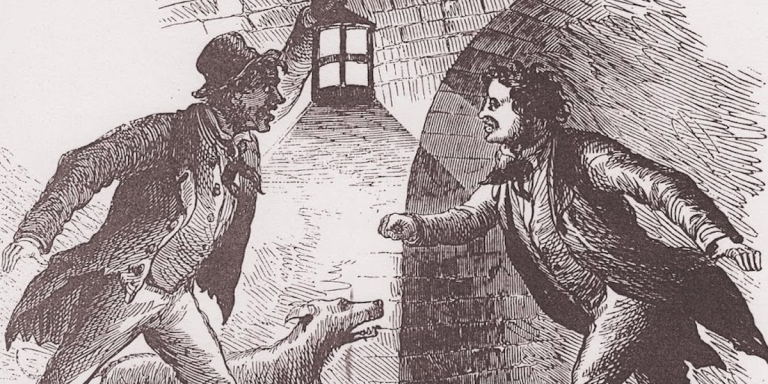Fitzwilly and the Multifaceted Role of the Butler in Crime Fiction
 The butler has been a long-standing trope in many crime fiction stories, murder mysteries, and whodunits. In fact, it’s an often-repeated joke that if you’re unsure of who the murderer was, in all likelihood the butler did it. But where did this trope come from? Here’s a look at how (and why) the butler has played an important role in crime fiction books, from Fitzwilly to Clue (1985) to Agatha Christie’s murder mysteries.
The butler has been a long-standing trope in many crime fiction stories, murder mysteries, and whodunits. In fact, it’s an often-repeated joke that if you’re unsure of who the murderer was, in all likelihood the butler did it. But where did this trope come from? Here’s a look at how (and why) the butler has played an important role in crime fiction books, from Fitzwilly to Clue (1985) to Agatha Christie’s murder mysteries.
Why is the butler such a famous figure in whodunit stories? In the early days of mysteries, especially locked room mysteries, a common set-up for the story would be a group of guests invited to dinner at a wealthy man’s mansion. At some point during the dinner, the wealthy man would die. The guests would then panic, wondering who amongst them had committed the crime. In reality? It was none of them. It was the butler, a figure so unassuming that everyone forgot he was there, and no one thought of him as a potential suspect. Of course, as the years have passed and people have become more familiar with murder mystery tropes, pinning the murder on the butler has become far too obvious to be the real solution to the crime. But there was a time when the butler would have been a shocking twist.
One of the most famous examples of a butler in mystery fiction? Claude Fitzwilliam in the 1967 film Fitzwilly. The film, directed by Delbert Mann and starring Dick Van Dyke as the title character, is the story of Miss Victoria Woodworth, a “wealthy” heiress who secretly only has $200 to her name. But she continues to live a lavish lifestyle, and her servants, led by Fitzwilliam, keep coming up with schemes that grow more and more elaborate, all in an effort to keep Miss Woodworth in the comfortable lifestyle she’s accustomed to living. All of it threatens to unravel when an outsider is invited into Miss Woodworth’s home, and it becomes Fitzwilliam’s job to keep the crimes covered up. While this story does not paint the butler as a murderer, Fitzwilliam in this situation is an unlikely criminal who relies on the trust he’s gained as a household figure to keep his crimes a secret.
Bestselling mystery author Agatha Christie has used variations of the butler trope in many of her novels. But being the crime fiction genius that she is, the author always managed to twist the trope in some new way. For instance, sometimes a servant or a butler committed a crime. In reality, however, they weren’t the servant/butler at all but rather one of the suspects simply posing as a servant in order to commit the crime. In And Then There Were None, one of Christie’s most famous works, the butler and his wife are prime suspects at the beginning of the story. However, the expectations of their involvement are soon subverted as the two end up being some of the earliest victims of the murderer.
1985’s Clue is another example of a film that plays with the expectations of the butler as a murder culprit. This film is a parody of the typical whodunit setup. We start with several guests coming to have dinner at Mr. Boddy’s mansion. Rather than using their real name, each guest is provided with a pseudonym. Early in the night, the guests realize that they are all being blackmailed by Mr. Boddy in some way. So it is unsurprising when the lights go out and when they come back on again, Mr. Boddy has been murdered.
Now the question is: who did it? There are many suspects, including the butler Wadsworth, played by Tim Curry. This film has a lot of fun with plenty of twists and turns and subverting expectations. In fact, when this movie was initially released in theaters, it was released with three separate endings, and you couldn’t be sure which one you would see. In each and every one of the endings, Wadsworth is not what you expected. In two of the three endings, Wadsworth is an FBI agent working undercover. In the third ending, Wadsworth has been Mr. Boddy all along. Sure, in each of the three endings, the butler is in some way involved in the conclusion, but never in the way you think he’ll be.
So did the butler do it? Yes and no. The lesson to be learned from the history of butlers in whodunits is this: no one is ever fully who you expect them to be. And no one—be they butler, maid, or valet—is ever simply a servant. The role of the butler is multifaceted and complicated, and while the butler will probably always remain a staple of murder mystery stories, the solution to the mystery will never be as simple as “The butler did it.”
By clicking 'Sign Up,' I acknowledge that I have read and agree to Hachette Book Group’s Privacy Policy and Terms of Use





